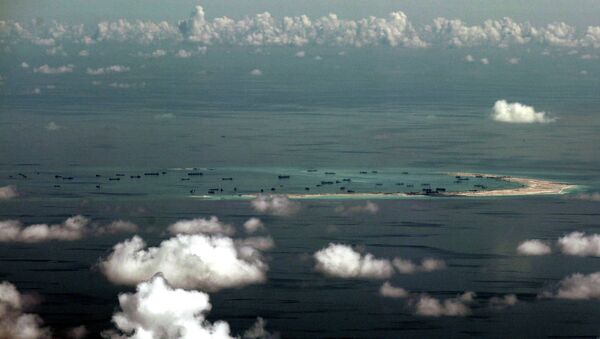The satellite network would be able to monitor every detail in the South China Sea, including the structure of vessels transiting busy sealanes. China's plan was revealed on Friday after a US think tank revealed satellite images of what appeared to be additional Chinese infrastructure in the hotly-disputed maritime area, according to the South China Morning Post (SCMP).
Chinese state media outlet Xinhua revealed that Beijing will launch a network of new sophisticated satellites by 2021, as the nation's existing orbital surveillance system does not provide complete coverage of the South China Sea, according to Collin Koh, a maritime security specialist at Singapore's Nanyang Technological University.
"The new satellite remote sensing plan… constitutes just a facet of the overall efforts China has been making in improving its sense-making ability in the South China Sea," Koh said, cited by SCMP.
A remote sensing expert based in Beijing also claimed that the new orbital surveillance network "could be called into military service when needed."
China has been expanding surveillance and military facilities in disputed waters since early 2016 in response to competing claims from Vietnam, Taiwan, Brunei, Malaysia and the Philippines.
According to the Asia Maritime Transparency Initiative, China has added 29 hectares of new infrastructure to seven South China Sea islands since 2016.
"[The construction has] got off the front pages, but we shouldn't confuse that with a softening in China's pursuit of its goals. They are continuing all the construction they want," Greg Poling, the initiative's director, said.
Some analysts believe that Beijing is taking advantage of US preoccupation with the North Korean threat to improve Chinese surveillance and control of the waters.
"Beijing must have also recognised that the current peace — compared to the ramped up tensions last year — could be temporary or transient, so it'll pay to continue to fortify its physical hold of the area," Koh said, cited by SCMP.
"Now that China appears to have managed to align Asean more towards its thinking about managing the disputes for now, it would seek to exploit the anticipated downplayed responses," he added.
Dai Fan, a Southeast Asian affairs analyst from Jinan University in Guangzhou, believes that China's new infrastructure is about strengthening China's control of territorial waters.
"China does not want to be confined to near shore and wants to go further into the high seas, and that build-up will help Beijing take control and compete with more powerful maritime nations like the US and Japan," Dai said.
"None of us want to see further militarization of the islands," Clarita Carlos, an international affairs expert from the University of Philippines added, suggesting that China's new construction could cause conflict between Asean nations.




